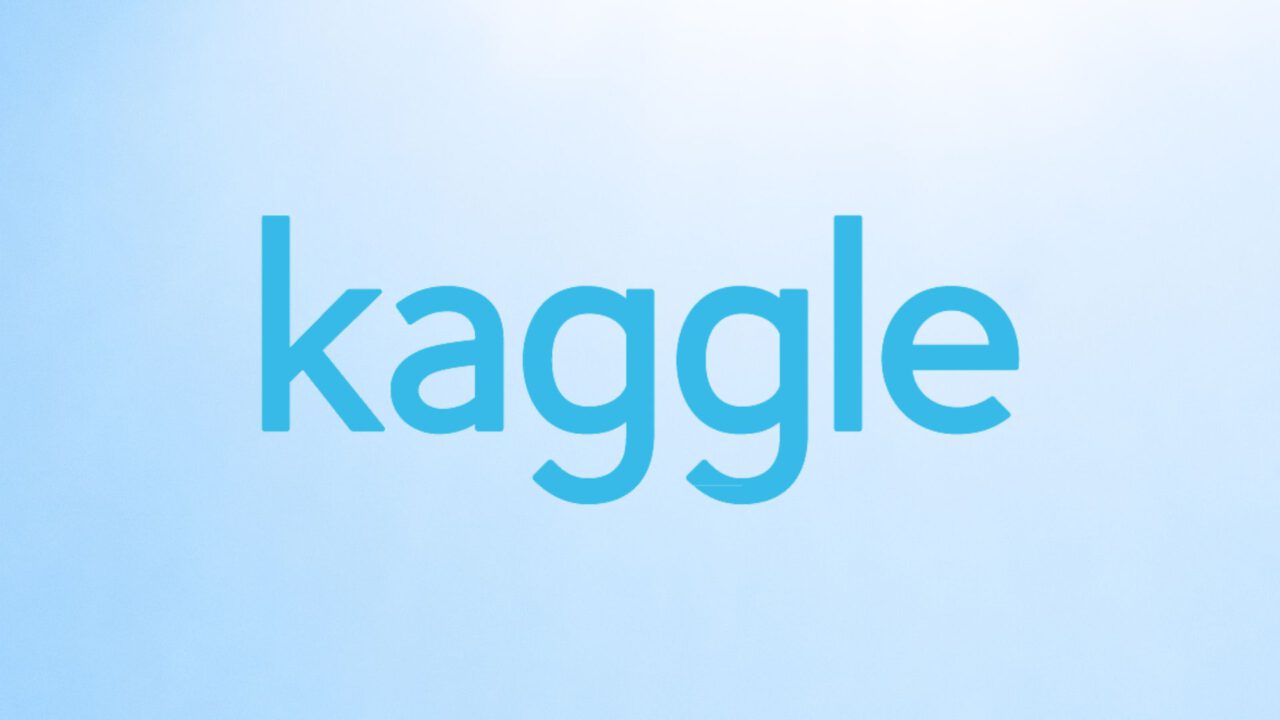Machine learning (ML) and Data Science (DS) are the topics every IT sector is discussing about. Everything is getting automated, and applications are also growing rapidly, thus creating room for more research and innovation. This article explores Kaggle, a popular platform for learning everything related to Data Science, Computer Vision (CV), and Machine Learning.
Everything You Need To Know About Kaggle
Founded by Anthony Goldbloom, Kaggle is a web-based data science environment where you can find, publish, share, implement real datasets, and build models. It is essentially a competition platform and community for DS and ML practitioners. It was created to achieve data science goals in one place.
Here’s what Kaggle offers:
- Learning and Training Content For Beginners and Experts Alike
- Kaggle Notebook (Cloud-based Integrated Development Environment)
- Public Datasets For Testing And Training
- Competition-Based Learning
- Networking (Data Science Community)
Getting Started With Kaggle
Following a well-thought-out plan or a course is one of the best ways to learn ML or data science.
Here is a clear pathway to help you get started with Kaggle from scratch.
- Select Programming Language: Choose the language that suits you, test out beginner courses, and stick to it (i.e., Python, R, SQL)
- Understand Machine Learning: Learn: Begin to dive a bit deeper by learning how to explore data with courses covering mathematics, statistics, probability, algorithms, and coding.
- Complete Beginner Exercises: Partake in 101 exercises and methodically review sample solutions.
- Train Your First Machine Learning Model: Start with basic ML models (i.e. Decision Tree) trained on real-world datasets.
- Join Beginner Level Competitions: You can start with approachable ML problems, getting-started/playground competitions, and tutorial competitions.
- Join Challenging Competitions: Partake in featured competitions where you can collaborate with experts. This will allow you to continue learning while leveling up your experience.
Select a Suitable Language For ML (Python, R, SQL)
Search for expert opinions and choose which programming language you are comfortable with. Python, R, and SQL are popular languages in ML (Python is considered a beginner-friendly language).
Learn Machine Learning And Algorithms (Maths, Stats, Probability)
Machine learning is based on data processing and exploration. Getting skillful in mathematics, statistics, and programming will help you better understand algorithms. Get familiar with basic ML techniques like supervised, unsupervised, reinforcement learning, decision-making, and other basic ML paradigms.
Applying these algorithms to solve real-world problems and using datasets for a given problem is important. Take on any online course available to learn about ML.
Complete Beginners Exercises (Real-World Datasets)
Theory alone will not take you long in data science; you need some practice. Practicing real-world problems will improve your skills. Search for some easy 101 exercises on Kaggle and practice different solutions to understand where your expertise stands.
- Python offers Matplotlib and Seaborn, simple plotting libraries for interactive data visualization and understanding complex datasets.
- Meanwhile, dplyr, ggplot2, and plotly are jewels of R when it comes to hassle-free data pre-processing and exploration.
Be sure to check out our data science with Python tutorial as well.
Train Some Easy Machine Learning Models (Reproduce Tutorials and Exercises)
You can try to train and test several popular and basic ML models on the platform. You need to learn how to manipulate data, implement algorithms, and build AI models. Implement basic algorithms like Decision Trees on real-world datasets and check how different algorithms work.
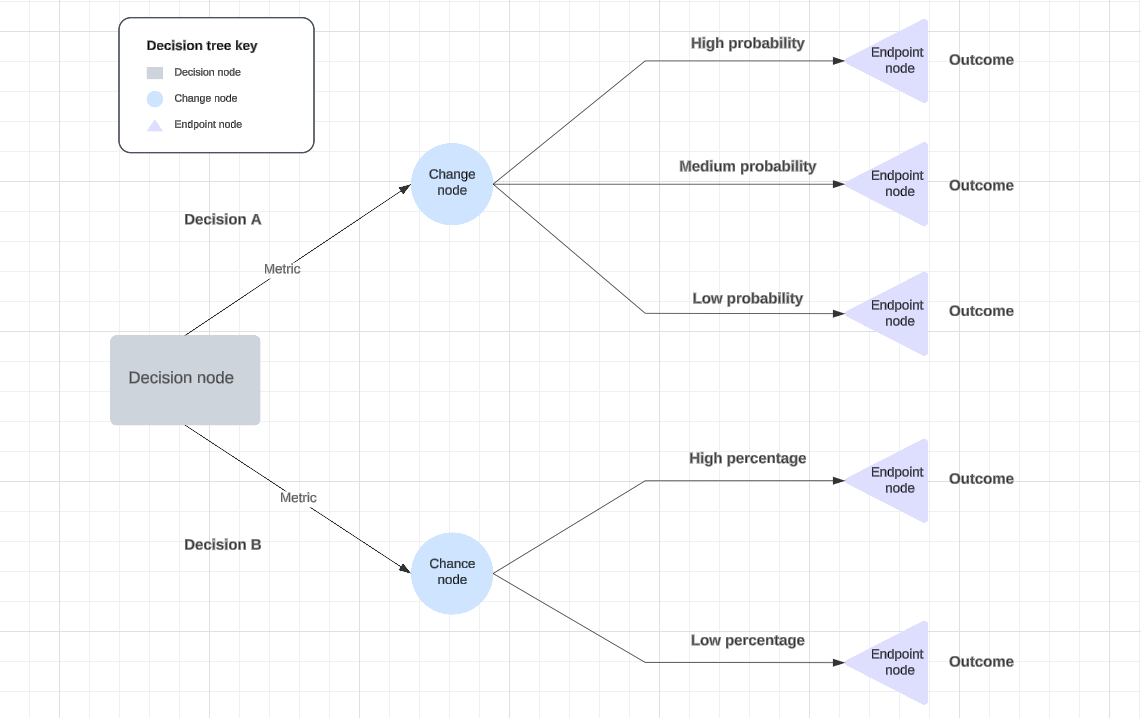
Reproduce already available solutions as well. Learning pre-trained models will save a lot of time and resources when working on computer vision tasks.
Participate in Tutorial Kaggle Competitions (Compete with Fellow Kagglers)
Kaggle competitions are categorized into different types. Before diving into complex challenges, we recommend testing your skills on more approachable ML problems. Try competitions under the Getting Started or Playground categories to further polish your newly learned skills and gain new knowledge.
Tutorial competitions are suitable for newcomers as there are several sample solutions and articles for building a high-accuracy model. Before undertaking an independent data science project, try to complete Knowledge competitions (for knowledge purposes only) and collaborate with fellow data scientists.
Move On To More Intensive Competitions (Expand the scope of learning)
If you are confident about your skills and expertise, now is the time to participate in more competitive projects and do actual stuff on Kaggle. Go for live featured competitions with large prize money. Unlike Getting Started competitions, these will require much more time and effort.
Join the competition, and do not be afraid to fail. You will need experience in any case; therefore, learning is the best outcome by participating in competitions.
What is more important is choosing the right competition that aligns with your skill set, as you will face some expert data scientists on Kaggle. While learning should be the prime motive here, you can demonstrate your skills to the world and make yourself more attractive as a data scientist.
How To Upload a Kaggle Notebook to GitHub
Kaggle Notebook allows you to analyze data, visualize, and develop machine learning models. Collaboration is another powerful feature of Kaggle Notebook, which allows multiple users to co-own or edit a single notebook, making sharing the code easy. Kaggle Notebooks are also referred to as Kaggle Kernels. On the other hand, GitHub is one of the best places to showcase your projects from Kaggle.
Let’s see how to upload the Kaggle Notebook to GitHub.
- In the Kaggle Notebook Editor, Click File > Link to GitHub.
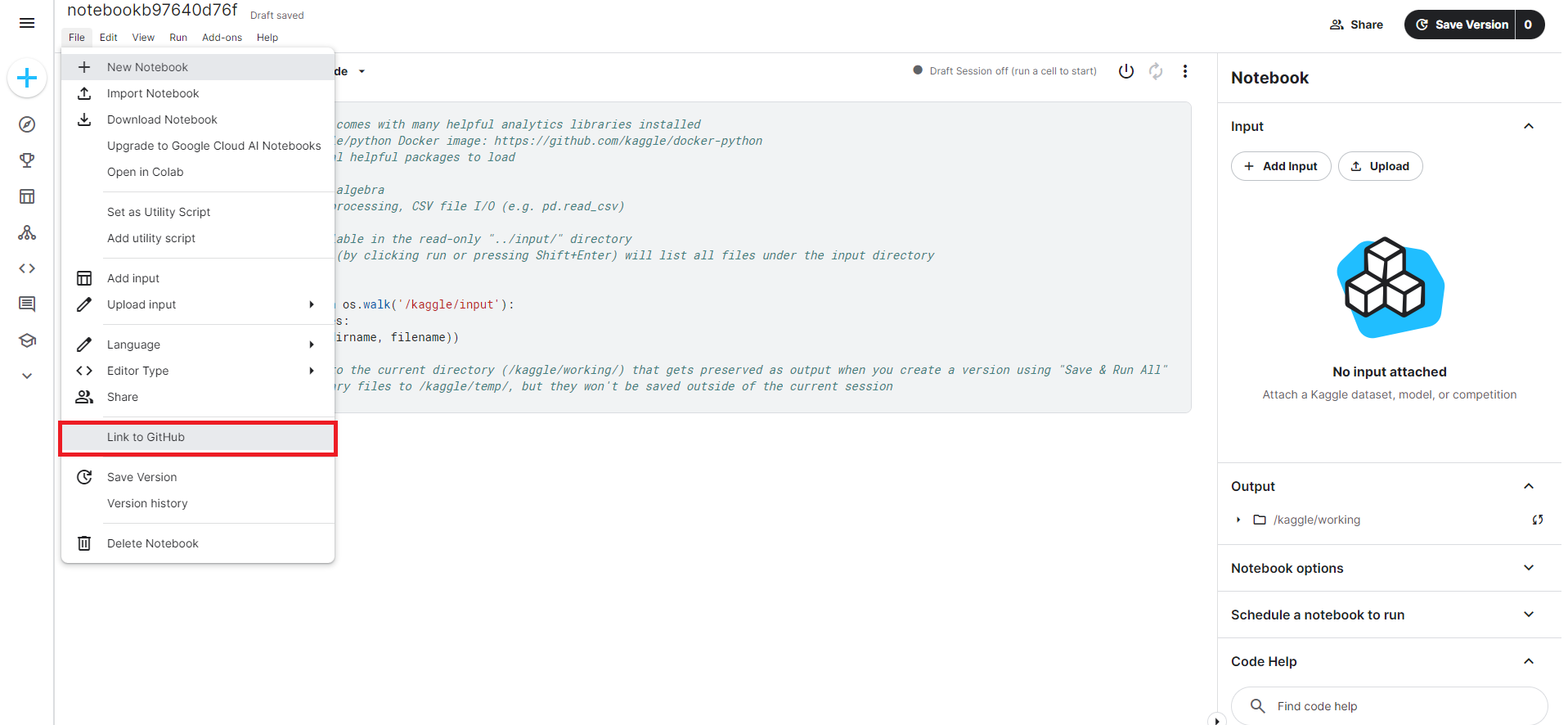
Note: You will be prompted to link your account if you have not already linked the GitHub account with the Kaggle account.
Moreover, all the changes and saves you make to your Notebook will automatically commit to your GitHub. The procedure for unlinking the Kaggle Notebook is the same as above.
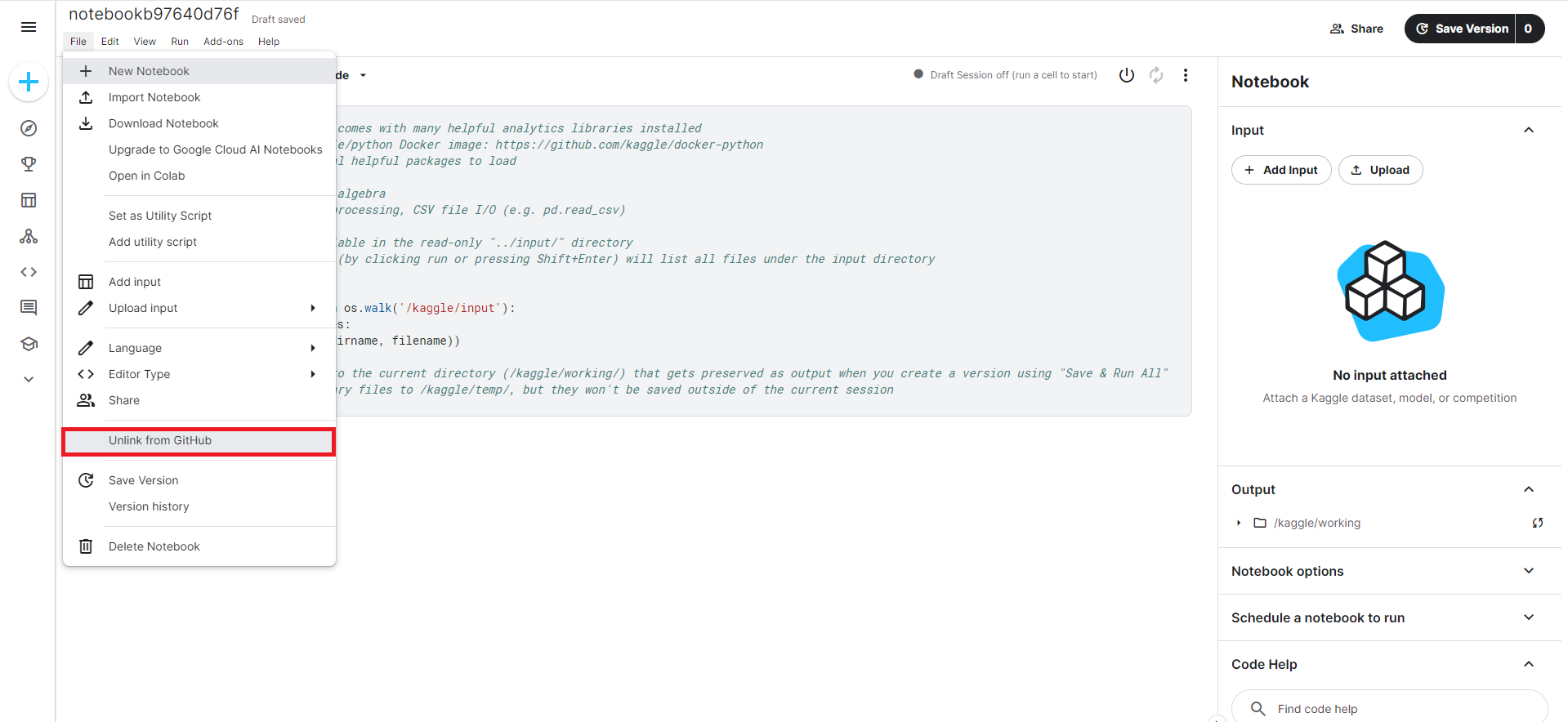
Kaggle Competition – Rewarding Learning
The key feature of this platform is its competition system. You can find competitions for every interest level and expertise level.

Based on performance metrics, every participant is given tier levels, i.e., novice, contributor, expert, master, and grandmaster. There are several types of competitions categorized in the following ways:
Featured
Kaggle is popular because of its competition system. These are generally full-scale machine-learning projects that often require professional skills. Most of these projects are posted by reputed companies and organizations to find a solution for their commercially purposed prediction problems. The cash prizes for such competitions can go as high as a million dollars.
A past featured competition has included a project based on computer vision.
- SenNet + HOA – Hacking the Human Vasculature in 3D: Complete the segmentation of blood vessels throughout the human body.
Due to its high cash prizes, featured competitions are often seen as the most competitive ones, providing an amazing opportunity for everyone to learn skills and techniques.
Research
Another common type of competition is Research Competitions. They are mostly scientific and scholarly challenges. However, they are more experimental than featured competitions.
Some research competitions are only for knowledge, while some offer cash prizes for top performers. The purpose of research competitions is basically to improve a specific domain of data science and ML.
A research competition has included:
- Right Whale Recognition: Automate the right whale recognition process using a dataset of aerial photographs of individual whales.
Getting Started
Specifically designed for newcomers, Getting Started competitions are the easiest challenges on Kaggle. You will not be awarded any cash prize or points for competing in these competitions. With many tutorials and sample solutions, these competitions are ideal for candidates just stepping into the field of machine learning.
- Digit Recognizer is an ongoing popular beginner-level competition in Computer Vision (learn about computer vision fundamentals with the famous MNIST data).
Playground
As the name suggests, these competitions are only for “fun purposes.” From a difficulty point of view, they are one step above the Getting Started competitions, as they are relatively new. Rewards for these competitions may vary from Kudos to small cash prizes. They are also categorized to inspire newcomers and interested candidates to upgrade their ML skills.
- Dogs vs. Cats is an example of playground competition based on computer vision to distinguish dogs from cats.
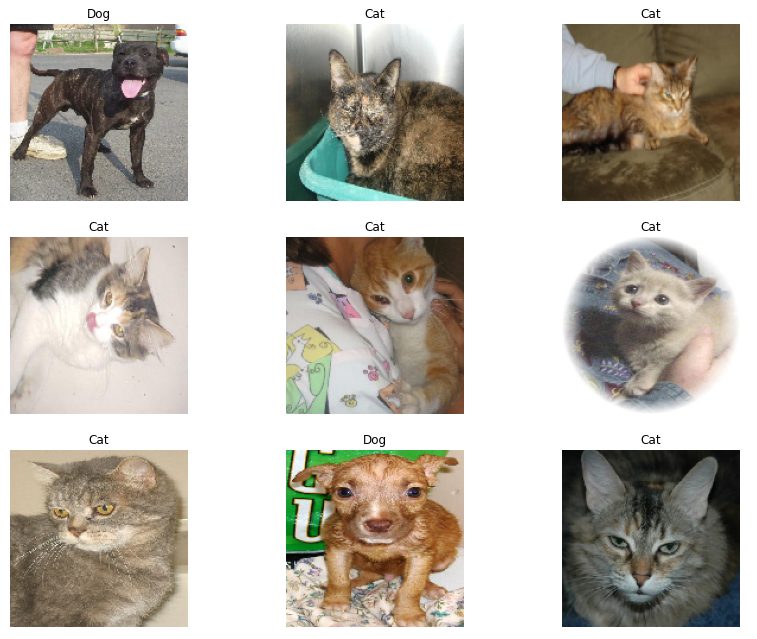
Community
Community competitions are a relatively new type of competition added to Kaggle. Anyone on Kaggle can launch these competitions and set the terms. The platform checks the accuracy of the submissions and scores them in real-time to announce the winner. There are generally no cash prizes for these competitions.
- NYU Computer Vision (Traffic sign classification competition) is an example of a community competition.
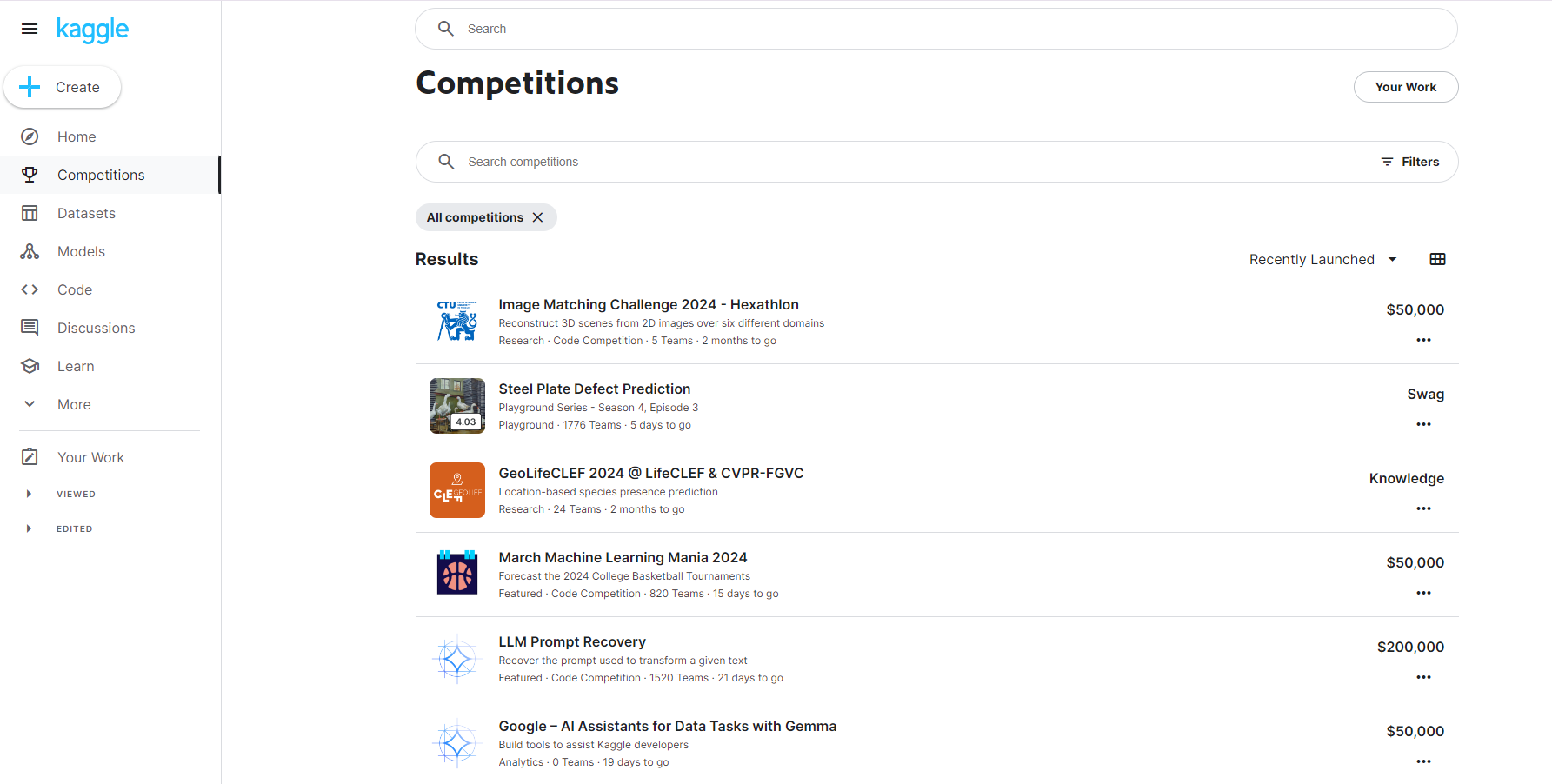
Learn how to enter a Kaggle competition here.
Kaggle Datasets
Kaggle has a wide variety of reliable open-source datasets. You can access several types of datasets in the following areas:
- Computer Science
- Education
- Classification
- Computer Vision
- Natural Language Processing
- Data Visualization
- Pre-Trained Model
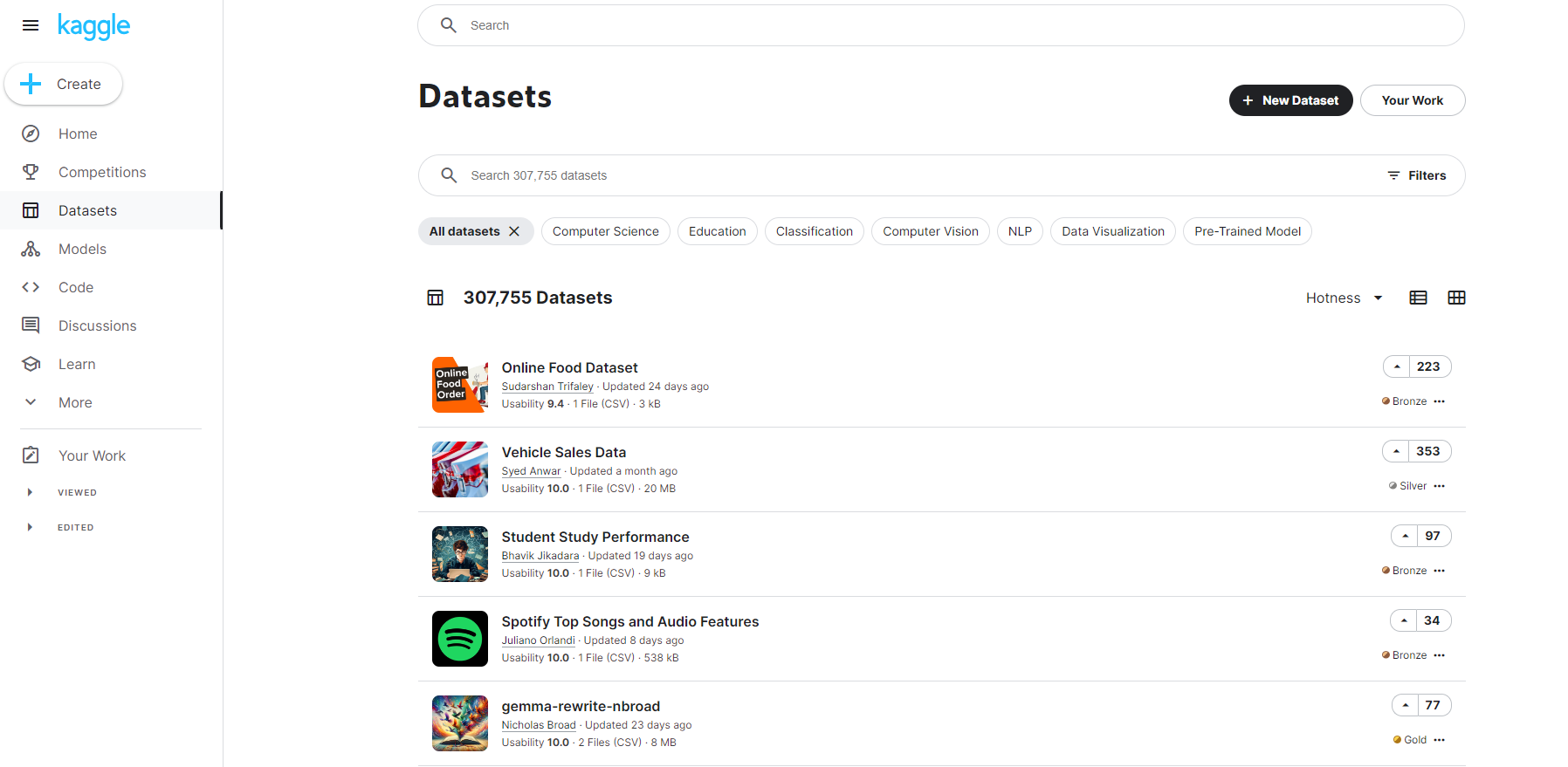
On Kaggle, datasets are not just a simple downloadable repository. Instead, they serve as a data science community where you can discuss, review, create your own projects in Notebooks, and share knowledge about the given dataset. Go for datasets that are suitable for newcomers. For example, use the Titanic dataset because it is relatively clean and easy to explore.
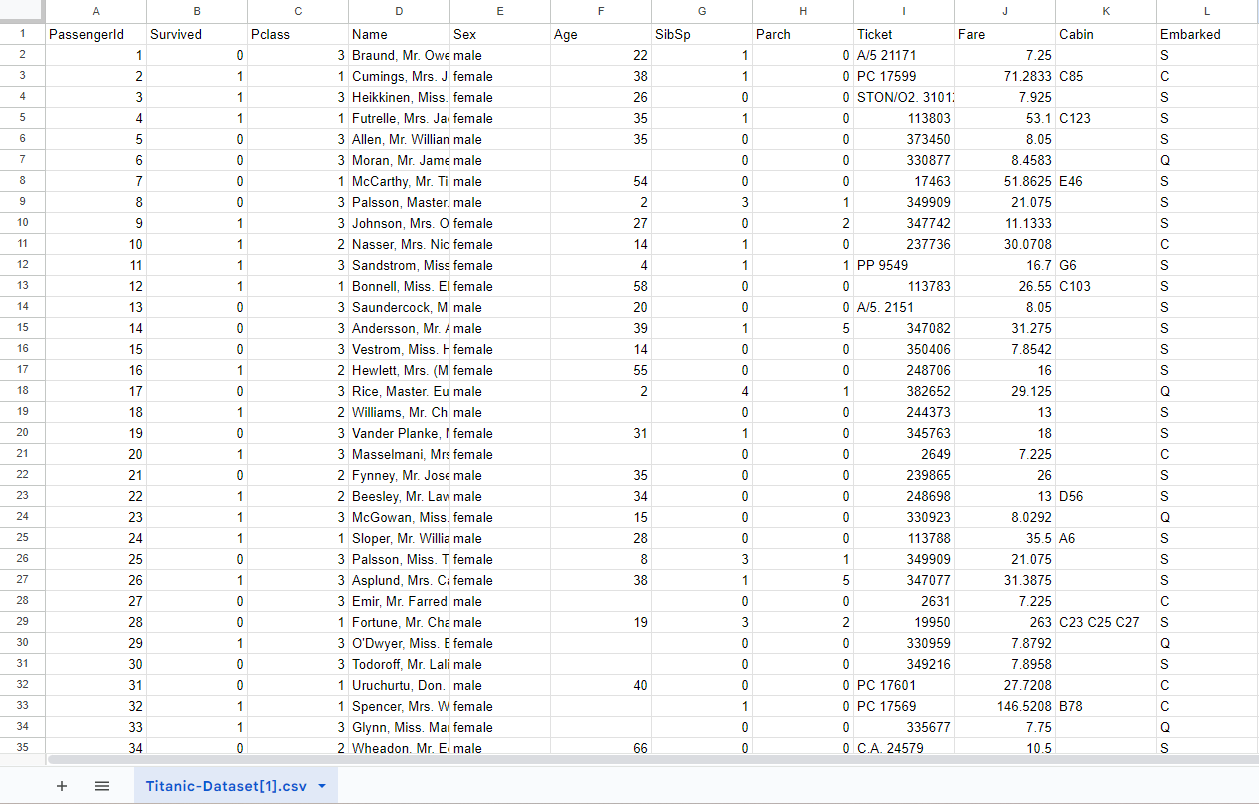
Please note that not all datasets on Kaggle are public datasets; some are private competition datasets only accessible by the participants. Currently, Kaggle houses 3000+ datasets for computer vision, e.g., VehicleDetection data structured in YOLOv8 format.
Exercises in Kaggle
As a learning and competitive platform, Kaggle provides practice exercises of several types for novice and expert data scientists. Participants can improve their data science and machine learning skills before competitions. Generally, you can find solutions to these Kaggle exercises posted by other members.
101 Exercises
These exercises allow aspiring data scientists and machine learning engineers to test their theoretical skills from scratch. To nourish your knowledge, you can test specific libraries, such as Pandas for data analysis, Numpy for matrices, and OpenCV for computer vision.
Warm-up Exercises
These exercises provide a brief recall of concepts related to a specific competition, such as the definition of warmup. Everyone, including experienced data scientists, can review these exercises to refresh their knowledge of a topic. Furthermore, the participants submit their initial results of these exercises to the related competition for participation.
How is Kaggle Different From Traditional Data Science?
Kaggle brings everything related to data science and machine learning in one place. Whether you want to learn, earn, grow, compete, or develop your skills, the platform has resources for all levels of data enthusiasts.
Traditional data science often involves learning at an academic level or training from a job perspective. On the other hand, Kaggle is like a paradise for people passionate about data science and machine learning. For example, traditional data science students will only learn the concepts related to camera models, multi-view geometry, reconstruction, some low-level image processing, and high-level vision tasks theoretically in their course, while on Kaggle, the implementation of Dogs vs. Cats (mentioned above) using real-world data will provide a completely different learning experience.
Here’s why Kaggle beats the traditional method of learning data science:
- Competitiveness For The Betterment of Data Science and Machine Learning
- Community of Data Scientists (Team Work And Collaboration)
- Constant Learning And Skills Development
- Vast Public Datasets
- Performance Metrics For Ranking System
Is it Beginner-Friendly?
The level of personal commitment decides whether Kaggle is good for beginners. As it is mostly known as a platform for data science competitions, Kaggle may not be that welcoming for beginners when discussing featured competitions. However, it is still an amazing source from which you can learn and develop your skills as a data scientist.
The salient feature of Kaggle is that it allows you to practice on the platform using its web-based Kaggle Notebook. You can publicly share your kernels, seek or give advice, and learn from the best data scientists.
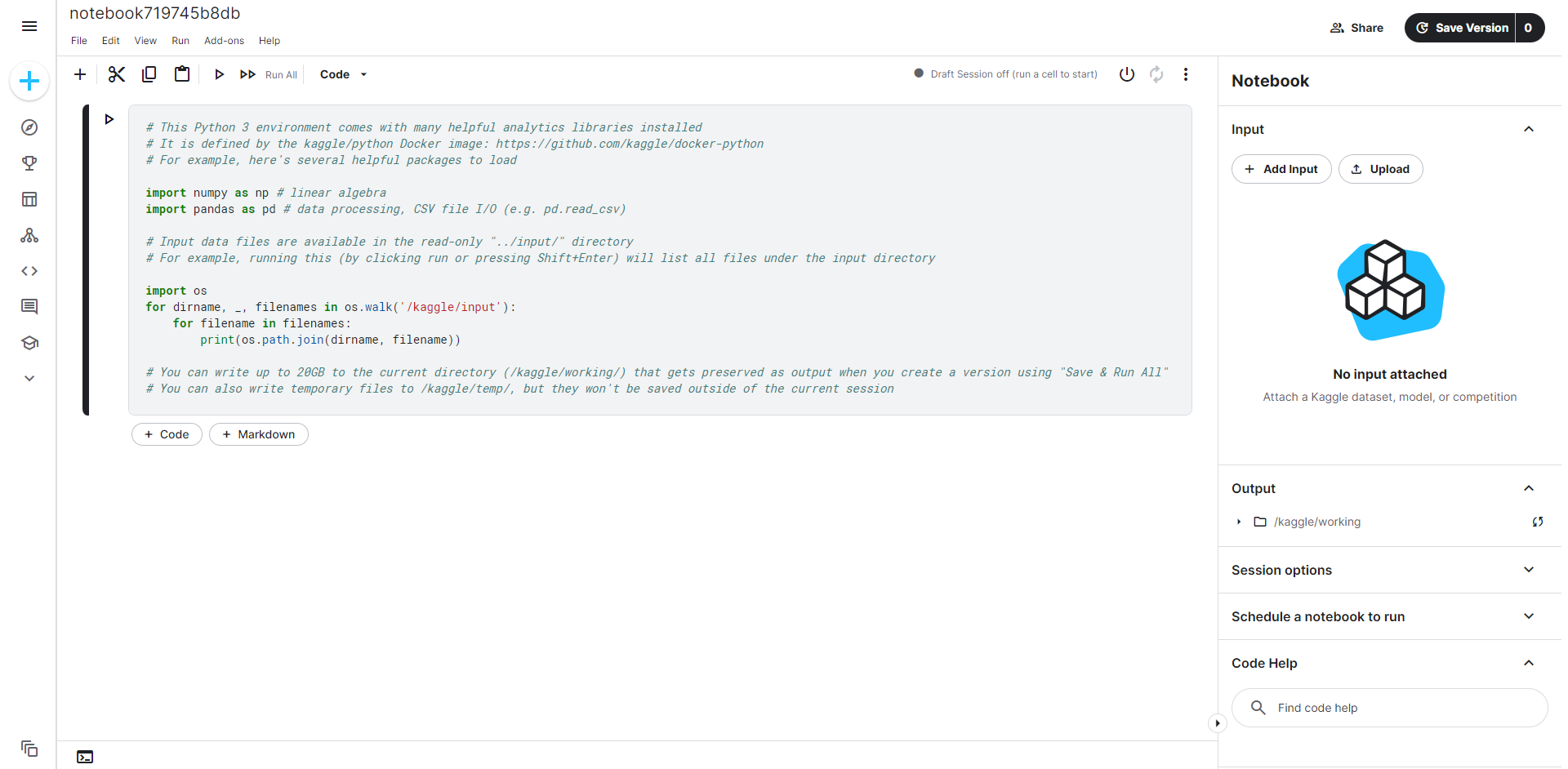
You definitely cannot cover all the material in a single night. However, learning takes time, and practicing makes your learning perfect; that is what Kaggle does. In conclusion, Kaggle is a great platform for building your career in data science, whether you are just starting or an expert.
What’s Next?
Kaggle is a data science and machine learning online community created to merge collaboration, competition, and learning in one place. Hence, starting on Kaggle will lead to innovation and skill refinement.
We have crafted a clear pathway for your journey of data science and machine learning on Kaggle to become an expert. We recommend checking out the Viso blog about computer vision algorithms and advancements to learn more. You will find several helpful posts, including:
- Optical flow – Object motion tracking algorithm
- Computer Vision Difficulties and Implementation
- Best Computer Vision Courses For Beginners
- Practical Overview of Edge Computing
